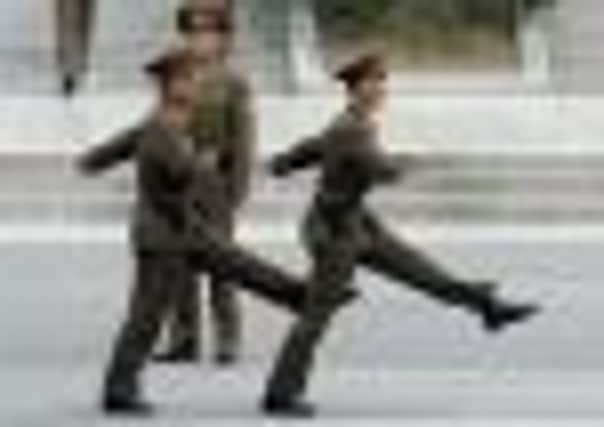North Korea agrees to stop nuclear tests in exchange for US food aid


The surprise breakthrough, announced simultaneously yesterday by the US state department and North Korea’s official news agency, makes possible the resumption of six-nation nuclear negotiations with Pyongyang.
It followed talks between US and North Korean diplomats in Beijing last week.
Advertisement
Hide AdAdvertisement
Hide AdWhile analysts cautioned that Pyongyang has backtracked repeatedly on past deals, the moves by North Korea mark a sharp change in course, at least outwardly, by North Korea’s reclusive leadership following the death in December of Kim Jong-il.
The state department said that, in return, the US was ready to go ahead with a 240,000-tonne food aid package requested by North Korea and that more aid could be agreed.
Along with halting weapons activities, North Korea said it would allow nuclear inspectors from the UN’s International Atomic Energy Agency to visit its Yongbyon nuclear complex to verify the moratorium on uranium enrichment has been enforced.
“The DPRK, upon request by the US and with a view to maintaining positive atmosphere for the DPRK-US high-level talks, agreed to a moratorium on nuclear tests, long-range missile launches and uranium enrichment activity at Yongbyon, and allow the IAEA to monitor the moratorium on uranium enrichment while productive dialogues continue,” North Korea’s official KCNA news agency said.
North Korea is known formally as the Democratic People’s Republic of Korea (DPRK).
“Today’s announcement represents a modest first step in the right direction,” secretary of state Hillary Clinton told a congressional panel.
The IAEA, which withdrew its inspectors from North Korea in 2009, said it was ready to return, calling the moratorium deal “an important step forward”.
South Korea and Japan both welcomed the announcement, with the foreign ministry in Seoul saying it could form the basis for a broader agreement on North Korea’s nuclear programme.
Advertisement
Hide AdAdvertisement
Hide AdAs part of the deal, Washington reaffirmed that it did not have hostile intentions towards North Korea and was prepared to take steps to improve ties and increase people-to-people exchanges.
The US decision to resume food aid was a gesture towards Pyongyang, which has sought international help to cope with chronic food shortages.
But Jack Pritchard, a former US negotiator with North Korea, said it was unlikely that Pyongyang’s new leader, Kim Jong-un, was ready to comply with demands that he scrap the entire nuclear programme.